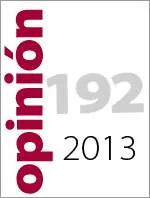Protests in Turkey as a symptom

Eduard Soler i Lecha
Research Coordinator, CIDOB
June, 4, 2013 / Opinión CIDOB, n.º 192 / E-ISSN 2014-0843
Turkish police using disproportionate repression to break up or prevent a public demonstration is nothing new. Yet, what makes recent events unique is how protests against the demolition of a park close-by Taksim Square, Istanbul’s nerve center, spread all over the country, beyond Istanbul and Ankara. The intensity of these demonstrations is not only astonishing but is also a symptom of the discomfort and frustration among a significant chunk of Turkish society –increasingly miscellaneous- vis-à-vis Recep Tayyip Erdogan’s ruling style and his Justice and Development Party’s (AKP) massive accumulation of power.
From 2002 onwards, the AKP has won on a row three parliamentary elections with large majorities, has gained control of many municipalities and, from 2007, it holds the Presidency of the Republic. In fact, it is this extensive and long-lasting political strength the reason behind AKP’s alleged disregard in front of those who do not share its values, ideology and political priorities. In the last months, several controversial decisions and misguided statements by Erdogan himself have been perceived by some groups as a direct attack against their way of life and identity. Indeed, the most recent controversies around restricting alcohol commercials and sales have raised concerns not only among secularists but among opinion leaders close to the AKP as well. These elements point out the party might reproduce the Kemalist illiberal attitude when restricting citizens’ freedom by imposing a specific set of values and a conservative lifestyle.
Additionally, public demonstrations are a symptom of widespread frustration with the lack of a viable political alternative to the AKP. This is partly because of the successful strategy followed by Erdogan’s party based on connecting with the values of a broad electorate while offering a prospect of growth and progress for the whole country. At same time, however, this trend is also the result of political opposition movements’ inability to articulate an alternative project that could be appealing to both, the unsatisfied voter per se and those who trusted the AKP due to its management abilities, not its values. It is worth mentioning in that sense that the main opposition party, the Republican People’s Party (CHP), barely exceeds 25% of the share of votes (the AKP obtained 49% of votes in the last general elections), as it is unable to connect with conservative citizens and Kurdish population, especially in rural areas. The rest of political forces, distribute all along the political spectrum, are atomized and face real problem in their attempts to go beyond their traditional domains.
The current constitutional reform process in Turkey only increases the levels of frustration among those who do not side with the AKP. In the political agenda, the debate about transforming the political system is highly present–with Erdogan and the majority of his party advocating for the implementation of a presidential model while the opposition fears this option will even increase power concentration-. Furthermore, talks with the Kurdistan’s Workers Party (PKK) to put the conflict to an end are also part of this debate as some have speculated Kurdish nationalism might support the shift to a presidential system in return for the opening of these negotiations.
Protests are also a symptom of the long path Turkey has undertaken in the last years. For instance, the Army (“sabre-rattling” fans until recently) has stayed on the sidelines and has not taken advantage of the situation in order to regain part of the political space lost in front of the civilian powers. The President, Abdullah Gül, AKP member, has appeared in public sponsoring reconciliation and respect towards the legitimate demands of the demonstrators. Clearly signing he has understood the message, Gül has affirmed that democracy goes far beyond an electoral process. Moreover, the rallies are a symptom of Turkish society’s non-conformist and dynamic nature and this is a positive evidence of good democratic health. The protesters’ request –despite they are rallying the streets or just supporting their aspirations from home- is not a regime change but alternative ways of ruling the country. A new attitude that would recognize it is impossible to force upon the whole society the set of values and the lifestyle of the majority. An attitude that would try to accommodate different opinions by means of dialogue and deals.
Taking all this into consideration, the diagnosis is clear: part of the Turkish society feels disregarded and underrepresented by current political power; even some (mainly those who do not share the presently hegemonic religious and conservative values) consider their identity and their lifestyle at risk. How to tackle this discomfort? If the answer is further violent and random police repression, further governmental defiant attitudes and further accusations of external agents being behind the demonstrations, protest will be fostered and the image of Turkey, in general, and of Erdogan and the AKP in particular, will suffer the consequences. Conversely, if the respond is admitting former mistakes –not only in addressing this crisis but also in the lately ruling attitude-, the situation could be hastily appeased, sending internally and internationally the message that Turkey is consolidating its democratic system.